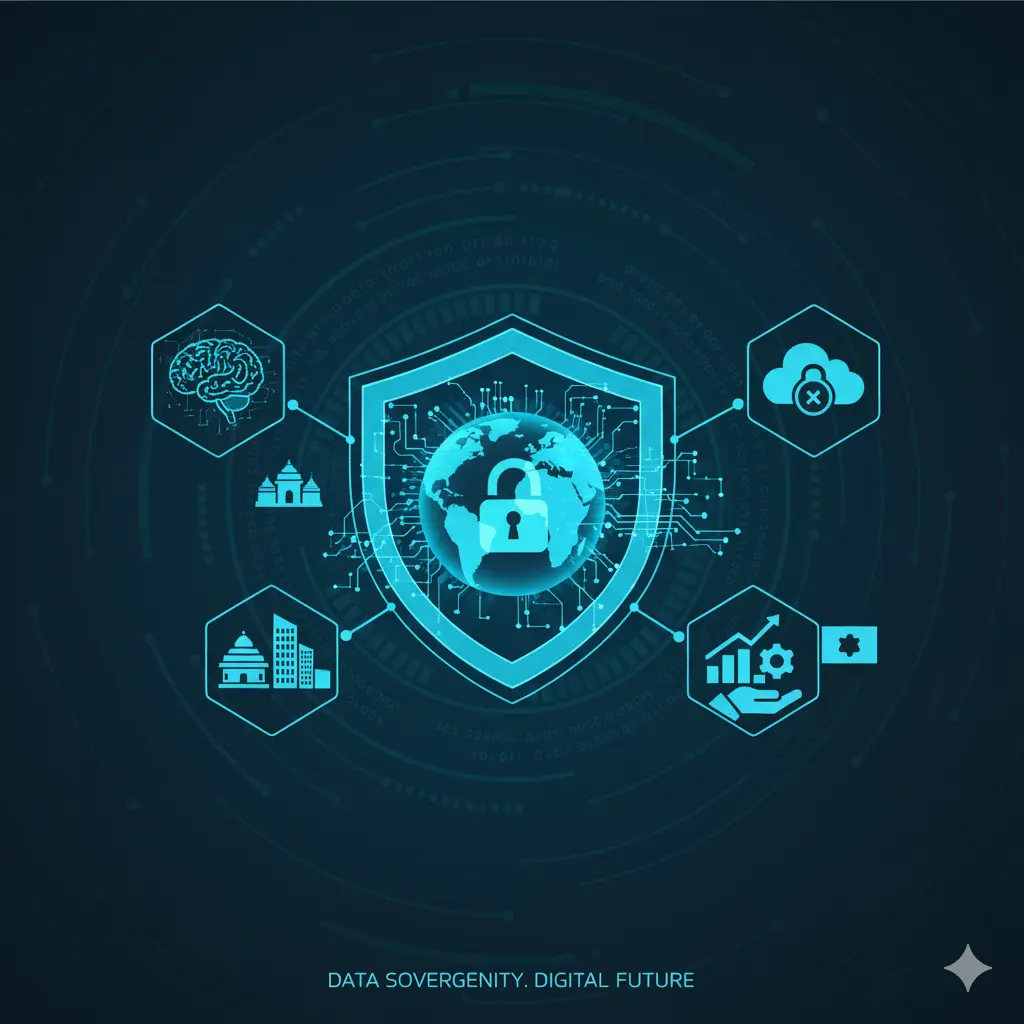
AI Decolonization turns data into a national strategic asset, empowering countries to compete globally while maintaining control over their digital future .I can also make an even shorter one-line version suitable for he
1. Introduction
AI Decolonization means keeping data and AI processing within a nation and not depending on foreign data offerings and technological frameworks. It is meant to empower a country to have control over its digital resources, lessen reliance on international tech behemoths, and promote local AI advancement.
2. Key Goals
Protection National Data Sovereignty
Data is a resource of great value and constitutes a potential security threat if kept outside a country. Localizing data and data processing guarantees enhanced privacy, security, and compliance with local laws. It minimizes risks of foreign data surveillance, use, and economically overpowering a country.
Allow Local Firms to Use AI for Local Development
Access to local data means local firms can create AI products that are aligned with local languages, cultures, and sectors. For instance, AI systems that optimize agriculture, assist with healthcare diagnostics, or plan smart cities to meet local needs.
Reduce Reliance on Foreign Cloud Services
Many nations have become overly reliant on cloud services offered by foreign corporations such as Google, Amazon, and Microsoft. AI decolonization will stimulate local cloud infrastructure development, which will economically benefit local jurisdictions.
3. Implementation Examples
Indonesia: Local and international investment focused on processing domestic data locally, which is expected to lead to a six-fold increase in revenues generated by data centers by 2030.
India: Government policies for “data sovereignty,” urging firms to keep sensitive data within the country and create local AI systems.
Thailand: Setting up AI research centers and local cloud facilities to cut down investments made to external providers.
4. Benefits
Technological Self-Reliance: Less dependency on other countries for technology.
Economic Growth: AI infrastructure investments attract local innovation and create jobs.
Cultural Relevance: AI technology addresses local needs and societal problems.
Security & Compliance: Local technology is more likely to meet local compliance and data privacy requirements.
5. Challenges
High Initial Costs: Setting up local data centers and AI systems is costly.
Talent Gap: The local AI expertise needed will require time to develop.
Global Competition: Competing against foreign technology established players will be challenging.
Conclusion
AI Decolonization is a new approach to global AI development. Localizing data storage and AI processing allows emerging countries to maintain national sovereignty, encourage internal innovation, and lower reliance on foreign technology. While the challenges of significant investments and infrastructure development needed in return offer long-term benefits of economic growth, enhanced security, and AI tailored to local needs.
AI decolonization essentially focuses on transforming data into a national asset. This should be every nation’s priority since it allows them to compete within the global AI economy without losing their independence.


